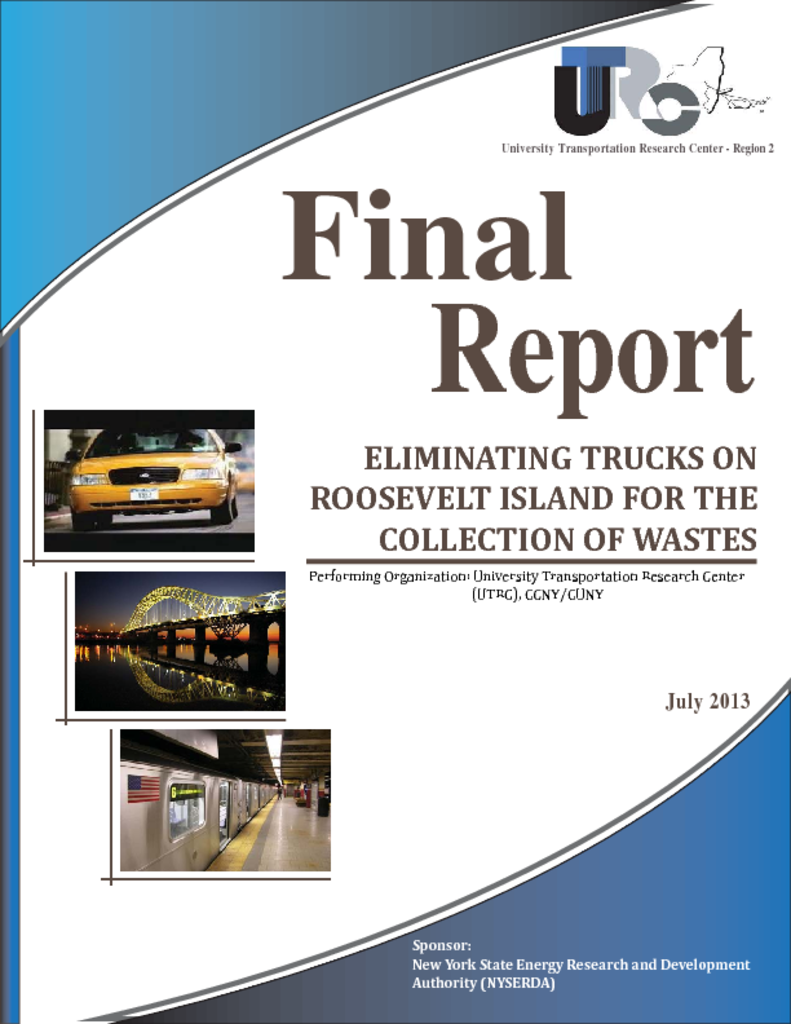This study examined alternatives for improving the efficiency of the pneumatic system that has been used for collecting residential municipal solid waste on Roosevelt Island, New York since 1975. Alternatives included a basic equipment upgrade; expansion to include separate recyclables streams (metal/glass/plastic; paper); and a further expansion of the system to include commercial and litter-bin waste. These three scenarios (plus the No-Action alternative, representing a continuation of the status-quo system) were compared to conventional truck collection. The No-Action alternative produced the greatest adverse economic and environmental impacts. Compared to conventional collection, all of the pneumatic scenarios offered advantages in terms of service frequency and reliability, labor and space requirements, and quality-of-life benefits. Because containers of pneumatically collected waste need to be drayed from the terminal to a transfer station or processing facility, some truck miles are still required. The simple equipment upgrade would generate 15% more truck miles than the conventional alternative, but when recyclables are included, overall truck miles would be reduced by 10%, and when commercial and litter-bin waste is included, by 70%, while diesel fuel use for the three pneumatic scenarios would decline by 10 to 90%. Since reductions in diesel fuel require increased use of electricity, and since the pneumatic scenarios collect 8 times more often, overall energy demand for these expanded systems would increase by 25% to 70% relative to manual collection. Likewise, greenhouse gas emissions for pneumatic collection would be up to twice as high as for conventional collection. Since up to 90% of the energy demand for pneumatic systems may be supplied by electricity rather than diesel fuel, electricity generated by low-carbon sources could reduce these greenhouse gas emissions. These pneumatic scenarios cost 10 to 25% less to operate, including the truck dray of containers from the pneumatic terminal to the long-haul transfer station, but when debt service for capital investments is included, overall operating costs for the pneumatic alternatives are 40 to 90% higher than for conventional collection. On a Net Present Value basis, this difference could be equalized if annual externality benefits on the order of $255,000 to $1,140,000 were realized. Given the value of potential savings by waste-generators (in space and labor costs) and of potentially monetizable public benefits (public-health and quality-of-life improvements), the pneumatic alternatives may achieve these levels of benefits.




